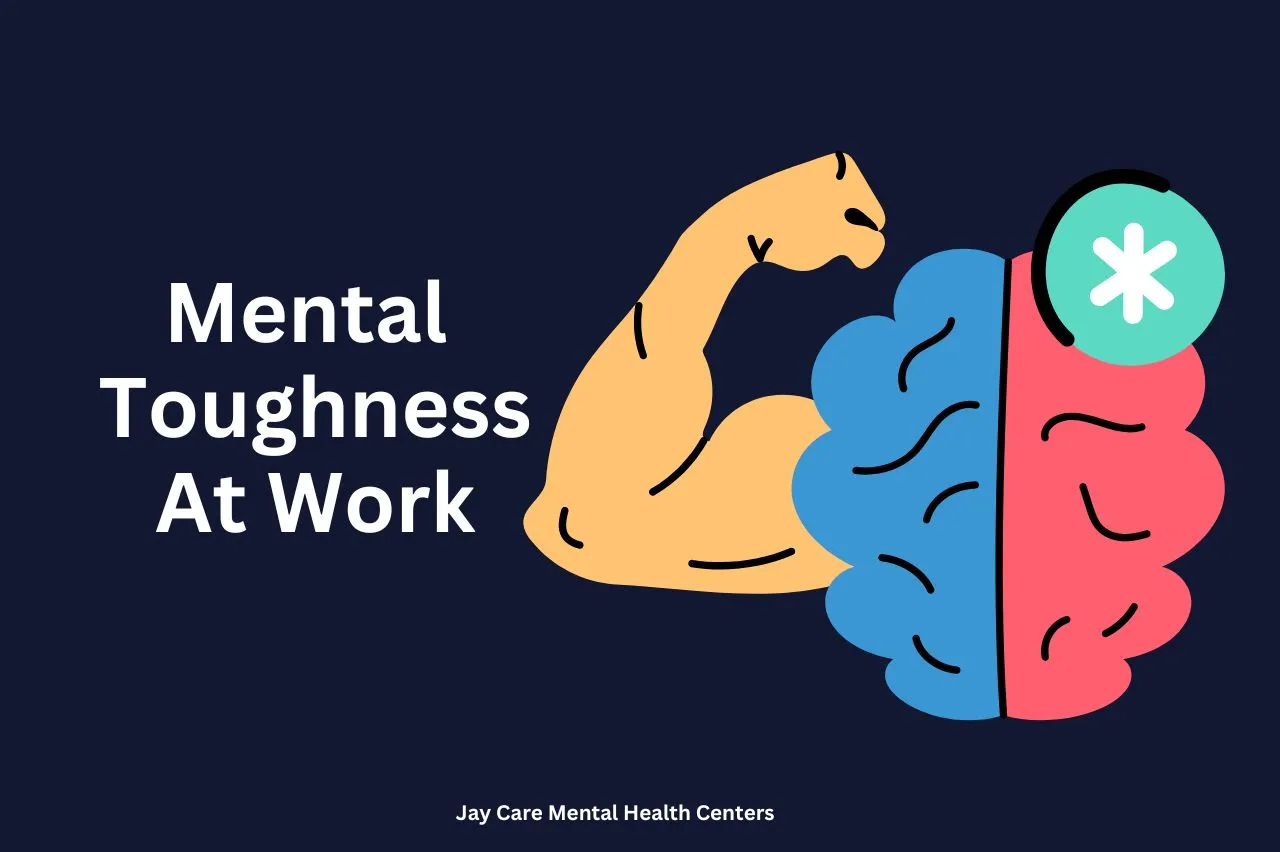Subtotal $0.00
On a Monday morning, you arrive at the office to find a pile of urgent tasks
waiting for you. Your inbox is flooded with emails, and meetings are stacked one after another. The pressure is mounting, but instead of feeling overwhelmed, you take a deep breath and dig in with calm focus. You’re not shaken by the chaos; instead, you approach every challenge with clarity,
adjust to sudden changes, and stay motivated despite the challenges. This is mental toughness at work—a vital skill that helps professionals thrive in high-stress environments while maintaining their well-being. Building resilience and managing stress effectively isn’t just a bonus; it’s essential to long-term success in today’s work culture.
What is Mental Toughness?
Mental toughness is not about ignoring stress but about-facing challenges head-on with the right strategies. It involves maintaining emotional balance, staying motivated under pressure, and quickly recovering from setbacks.
In the workplace, mental toughness allows individuals to:
● Handle stress effectively during high-pressure situations.
● Adapt to change and uncertainty.
● Stay positive despite challenges.
● Recover from failures without losing focus.
The Impact of Stress at Work
Workplace stress is inevitable. With long hours and tight deadlines, it’s easy to feel overwhelmed. Studies have shown that work-related stress can contribute to anxiety, depression, and decreased productivity. However, mental toughness helps professionals control their response to stress, reducing its harmful effects.
Key Strategies to Build Mental Toughness and Manage Stress
1. Mindfulness and Self-Awareness: Regularly check in with your emotions to manage stress effectively. It is important to recognize when you are feeling overwhelmed so that you can remain resilient.
2. Develop a Growth Mindset: See challenges as opportunities for learning. By focusing on growth, you can transform setbacks into valuable lessons.
3. Practice Positive Self-Talk: Replace negative thoughts with positive affirmations. For instance, instead of thinking, “This project is too hard,” try saying, “This is challenging, but I can handle it.”
4. Set Clear Boundaries: Establish work-life balance by setting limits on your work hours. This helps prevent burnout and keeps your mind refreshed.
5. Build Strong Social Support: How happy are you at work? A supportive network can help you manage stress and navigate tough times.
The Role of Employers in Promoting Resilience
Employers have a significant role in fostering employee resilience. By offering resources such as mental health workshops, access to professional support, and encouraging open communication about mental well-being, companies can create a supportive environment that prioritizes employee health.
Conclusion
Building mental toughness is essential for navigating the pressures of today’s demanding workplaces. By adopting strategies such as mindfulness, setting clear boundaries, and fostering supportive relationships, professionals can not only manage stress more effectively but also enhance their overall well-being. Employers also play a vital role by promoting a workplace culture that prioritizes mental health, creating an environment where employees can thrive without compromising their mental well-being.
Jay Care Mental Health is committed to helping individuals develop resilience and manage stress with tailored programs designed for professional success.
Click here for support in cultivating the mental toughness you need to succeed.
For more tips on building the mental strength that helps you excel at work and in life, subscribe to our newsletter below.
As we approach World Mental Health Day 2024, with the theme “It’s Time to Prioritize Mental Health in the Workplace,” take the opportunity to focus on your well-being and explore how you can foster a healthier work environment. Learn more here.




